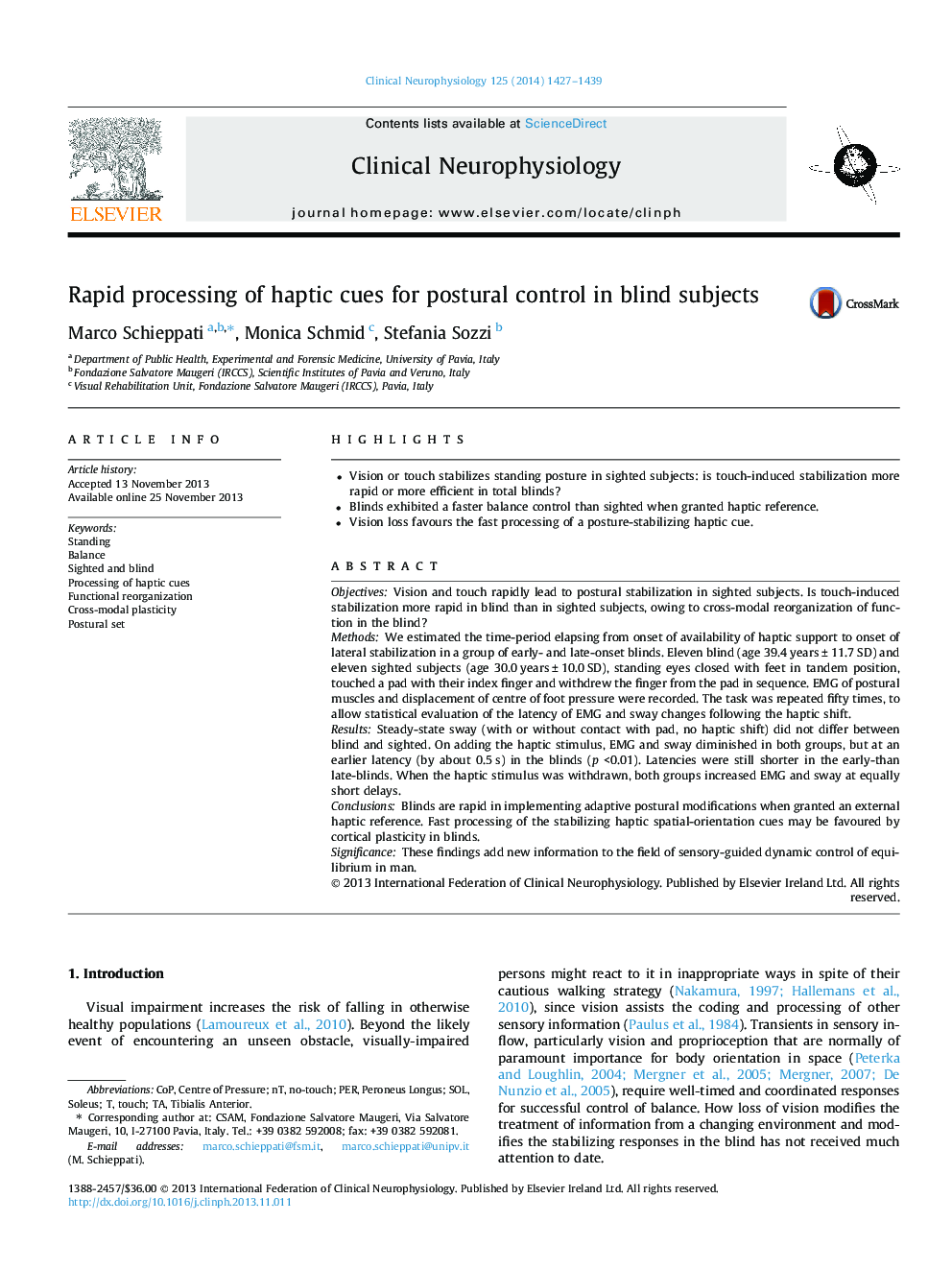| Article ID | Journal | Published Year | Pages | File Type |
|---|---|---|---|---|
| 3043915 | Clinical Neurophysiology | 2014 | 13 Pages |
•Vision or touch stabilizes standing posture in sighted subjects: is touch-induced stabilization more rapid or more efficient in total blinds?•Blinds exhibited a faster balance control than sighted when granted haptic reference.•Vision loss favours the fast processing of a posture-stabilizing haptic cue.
ObjectivesVision and touch rapidly lead to postural stabilization in sighted subjects. Is touch-induced stabilization more rapid in blind than in sighted subjects, owing to cross-modal reorganization of function in the blind?MethodsWe estimated the time-period elapsing from onset of availability of haptic support to onset of lateral stabilization in a group of early- and late-onset blinds. Eleven blind (age 39.4 years ± 11.7 SD) and eleven sighted subjects (age 30.0 years ± 10.0 SD), standing eyes closed with feet in tandem position, touched a pad with their index finger and withdrew the finger from the pad in sequence. EMG of postural muscles and displacement of centre of foot pressure were recorded. The task was repeated fifty times, to allow statistical evaluation of the latency of EMG and sway changes following the haptic shift.ResultsSteady-state sway (with or without contact with pad, no haptic shift) did not differ between blind and sighted. On adding the haptic stimulus, EMG and sway diminished in both groups, but at an earlier latency (by about 0.5 s) in the blinds (p <0.01). Latencies were still shorter in the early-than late-blinds. When the haptic stimulus was withdrawn, both groups increased EMG and sway at equally short delays.ConclusionsBlinds are rapid in implementing adaptive postural modifications when granted an external haptic reference. Fast processing of the stabilizing haptic spatial-orientation cues may be favoured by cortical plasticity in blinds.SignificanceThese findings add new information to the field of sensory-guided dynamic control of equilibrium in man.
